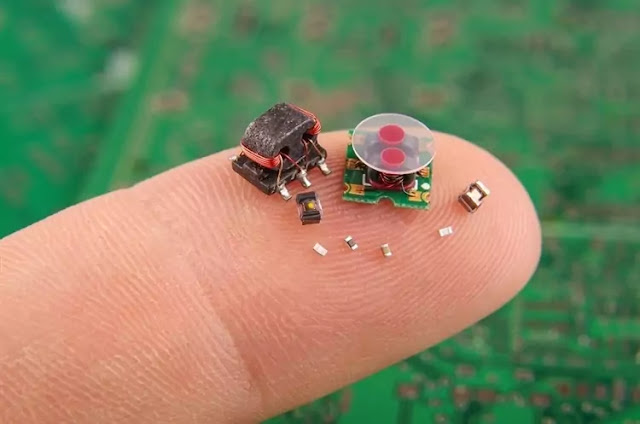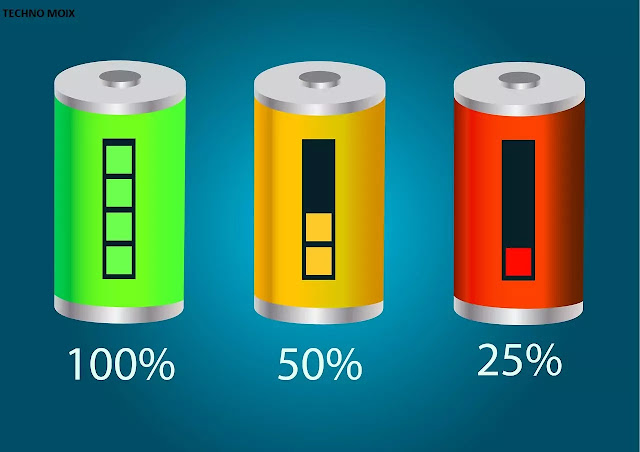Significant advance Innovations in technology
Here are significant advance innovations of modern era, details that have been mentioned as under:
Check all of them, and read about these wonderful upcoming inventions.
The spherical spacecraft
has been the most frequently seen spacecraft since the 1950s, bringing alien
creatures to Earth.
It has now been invented.
A British company (AESIR) has developed flying vehicles They are of different
sizes and it flies vertically. It uses the Canada Effect to create force. This
effect forces the liquid jet to take a circular path and it moves along the
surface of the round body.
This process can be
observed by placing a burning candle behind a sphere and blowing air on the
can. Besides, there are large aircraft capable of carrying tons of
material. It was exhibited at the International Exhibition of Defense Systems
and Equipment in London.
The Pentagon's advanced
research organization, Drape, has announced a competition under the Vulture program, which will develop aircraft that will run without refueling.
According to the
company, these will be unmanned communications and surveillance aircraft. Which
will continue to fly above the target and broadcast information without
interruption?
The first entry in this
competition has been made by a ship named Odysseus and its Z-arranged wings
have solar cells installed which will work day and night by getting power from
sunlight.
Scientists at the Jarjia
Institute of Technology have developed the world's first self-powered
nano-sensors. Through electrical effects (I change when mechanical pressure is
applied to the wires. Piezo Electric effects will be applied to various devices
such as lighting a cigarette lighter and other such devices. This mechanical
Pressure produces voltage throughout the material.
The nano-sensors are
completely attached to a flexible surface and do not need to be attached to a
metal electrode. The flexible surfaces on which these nano-sensors are mounted
do not require a battery and they do not run, Microphones (to use the
mechanical vibrations of sound as a source of power) or mechanical energy
generated by ocean waves.
Paula Hammond of the
Massachusetts Institute and her colleagues have worked to create genetically
modified bacteria that can bind to certain electrically conductive
metals.
A metal-clad device can
act as a powerful and efficient battery Its slender, long structure has the
ability to store a significant amount of charge in a very short space of time,
making it more efficient than conventional batteries.
Even when the structure of
the virus is degraded, the metal envelope is so strong that it can continue its
work. "Viral batteries" are less than half the size of a living cell.
They have the potential to power very small medical devices. They are also
being used in a variety of very small electronic devices. For example, these
batteries are being used in the "drone mosquito" developed by NASA.
Over the last few years,
there has been a resurgence in the development of electronic devices, which can
be covered with flexible materials by industrial printing machines, and then
they can be used as sensors, smart labels, etc. But we are printing batteries.
(Printable Batteries) Work in progress.
The Fran Hofer Research
Institute for Electronic Nanosystems, based in Chemnitz, Germany, has
developed paper-thin batteries that can be made on a silkscreen through mass
printing, much like printing on T-shirts.
Each battery weighs only
one gram and has an electrical power of 1.5 volts. It can hold different
batteries in a sequence that can generate 3V, 4V.5V, 6V electrical power in
each battery. Zinc is the layer of the anode. It is also being used in other
places, including battery-powered bank cards and flashing greeting cards.
A private paint company
has developed light-emitting T-shirts that will be used in a shiny design on
T-shirts are printed by screen printing. The method incorporates silica
nano-components. The company is developing light-emitting posters and other
textiles.
A little sun on earth
The strangest experience
in human history is being prepared in a place near southern France. Named the
International Thar Nuclear Experimental Reactor (ITER), it aims to replicate
the process by which the sun and stars generate heat and light through fusion
interactions.
It is a process in which
light elements combine to form heavy elements and during this process, a huge
amount of energy is released. Our planet has been receiving heat from the sun
for millions of years due to this fusion reaction and so on. The process itself
produces light and heat.
The project is being
co-funded by the European Union, India, Japan, China, Russia, South Korea and
the United States, at an estimated cost of 10 billion euros and will take about
15 years to complete.
The purpose of this
project is to combine the two large isotopes of hydrogen, deuterium, and
tritium. Experts estimate that the heat generated by this process will be 5-10
times more than the energy required in this process.
Achieving the fusion
target will require extraordinarily high temperatures, which must be 100
billion K. For this, a special vessel will be used, in which the Fusing Plasma
will be suspended by magnetic force, so that at high temperatures, the metal in
the vessel does not melt and evaporate.
By the end of this
century, our cities will receive energy from fusion reactors, which will use
seawater as a source of deuterium. And we will benefit from the man-made sun on
earth.
Credit card-like TV screen
As you know, some organic
(carbon-containing) materials emit light when charged with electricity. These
organic materials are providing the basis for a new type of TV screen. They are
made from OLEDs (Organic light-emitting diodes).
Their thickness is only
0.30mm which is the thickness of a credit card and why OLED material. Can
produce their own light. So, they don't need anything on the back of the screen
except the charged plate which will emit electrons on the screen. In contrast,
fluorite or LED lamps are required to remove pixels from the LCD (Liquid
Crystal Display Screen).
Plasma screens, on the other hand, require electrically charged gas cells to illuminate them. One of
the advantages of the new OLED-based technology is that the light is emitted
from these organic molecules, from which the screens are made to shine in
different colors.
In contrast, the LCD emits
white light, which is passed through filters to create colors. This reduces the
power of light and colors. Even the colors of OLED screens are much darker and
brighter than the phosphorescent screens used in plasma TVs.
By imitating nature ... amazing new technology
Evolution has been taking
place in living things for millions of years to fly, swim, and meet the
challenges of the environment. These features have led scientists to develop
devices that have better capabilities than ever before.
This process is called
"biomimicry", which is the process of paving the way between biology
and engineering. For example, locusts travel together in a group, but
surprisingly they do not.
They do not collide,
because they can see in many directions at once. Inspired by
this capability, the automobile industry has developed anti-collision sensors
that detect movement around the car and alert the driver to a collision.
The gigantic whale on the
back travels very fast in the water, and its movement is a mystery to
scientists, as there are small bumps on the front that move in the wrong
direction according to the principle of aerodynamics.
The forewings of the fish
should be smooth or flat. However, aerodynamics studies have shown that the
front edges of a fan's wings pick up the air with greater force, give less output,
and lower rotational speeds with greater force. Now wind turbines are based on this
technology preparing.











Do not enter any spam line. thank you